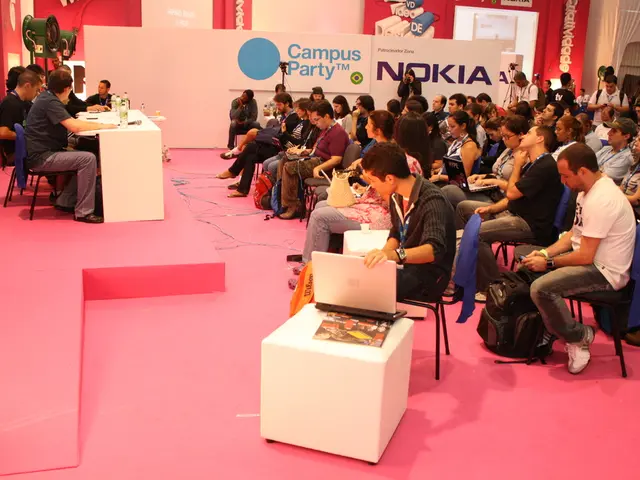Google Scholar's Platform Faces Challenges Due to Prevalence of Unsubstantiated AI-Generated Research, Study Indicates
AI-driven scientific research is casting a shadow over the online academic information landscape, as per a report published in the Harvard Kennedy School's Misinformation Review. A team of researchers scrutinized the prevalence of AI-generated text within research articles on Google Scholar, an academic search engine that indexes numerous academic journals.
The team specifically focused on the misuse of generative pre-trained transformers (GPTs), a type of large language model that's popularly known for tools like OpenAI's ChatGPT. These models can efficiently interpret and generate responses, such as images and text, based on input.
The researchers examined a sample of papers with potential GPT-use indicators, like frequent conversational agent language. They then examined the distribution and hosting of these questionable papers across the internet.
"The rise of what we call 'evidence hacking' surges when AI-generated research circulates in search engines," said Björn Ekström, a researcher at the Swedish School of Library and Information Science and co-author of the paper. "Incorrect results can spread further into society, and possibly into various domains, causing tangible consequences."
The way Google Scholar indexes research from around the web can pull in academically unverified works, such as reports, student papers, and preprints, alongside peer-reviewed studies. In their research, the team discovered that two-thirds of their sample study contained at least partially undisclosed GPT-generated content. The GPT-fabricated papers focused on health (14.5%), environment (19.5%), and computing (23%).
The researchers highlighted two main risks posed by this trend. "First, the abundance of fake research can threaten to overwhelm the scholarly communication system, jeopardizing the integrity of the scientific record. A second risk is the increased chance that convincingly scientific-looking content was deceitfully created with AI tools and distributed by search engines, especially Google Scholar," the group wrote.
Because Google Scholar is accessible for public use, it's challenging for individuals to distinguish accurate research from unreliable resources, even in highly scrutinized studies.
"If we cannot trust that the research we read is genuine, we risk basing our decisions on incorrect information. However, this is not just a concern for academic misconduct; it's an issue of media and information literacy," said study co-author Jutta Haider, another researcher at the Swedish School of Library and Information Science.
Over the past few years, reputable publishers have struggled with filtering out AI-generated nonsense research. For instance, Springer Nature was forced to retract 40 papers from the Arabian Journal of Geosciences in 2021. The topics ranged from sports to children's medicine, and the papers were poorly written and lacked coherence.
AI tools have also exacerbated this issue. Last February, Frontiers deflected criticism for publishing an inaccurate paper in its Cell and Developmental Biology journals, which included AI-generated images with anatomical errors. The publisher later retracted the paper.
While AI models can contribute positively to science, their impact can be equally damaging if misused. AI tools can analyze fragile historical texts, uncover previously unknown patterns, and reveal hidden information in fossils.
The primary challenge lies in ensuring that peer-reviewed journals and academic databases utilize AI tools ethically to boost scientific discovery, not hinder it.
Relevant Enrichment Data:
- AI-generated research can affect academic integrity by introducing misleading information, difficulty in distinguishing genuine research, and the risk of evidence hacking.
- Measures include improved screening, transparency in AI use, enhanced education, clear guidelines, critical evaluation, and media and information literacy.
- By implementing these measures, the academic community can mitigate the impact of AI-generated research and maintain the integrity of academic information.
In the future, it's crucial for academic communities to implement measures to mitigate the impact of AI-generated research, such as improved screening, transparency in AI use, and enhanced education. This will help prevent misleading information and make it easier to distinguish genuine research from AI-generated content.
The misuse of AI tools in scientific research poses a significant threat to the future of academic integrity, potentially causing widespread misinformation and evidence hacking.








